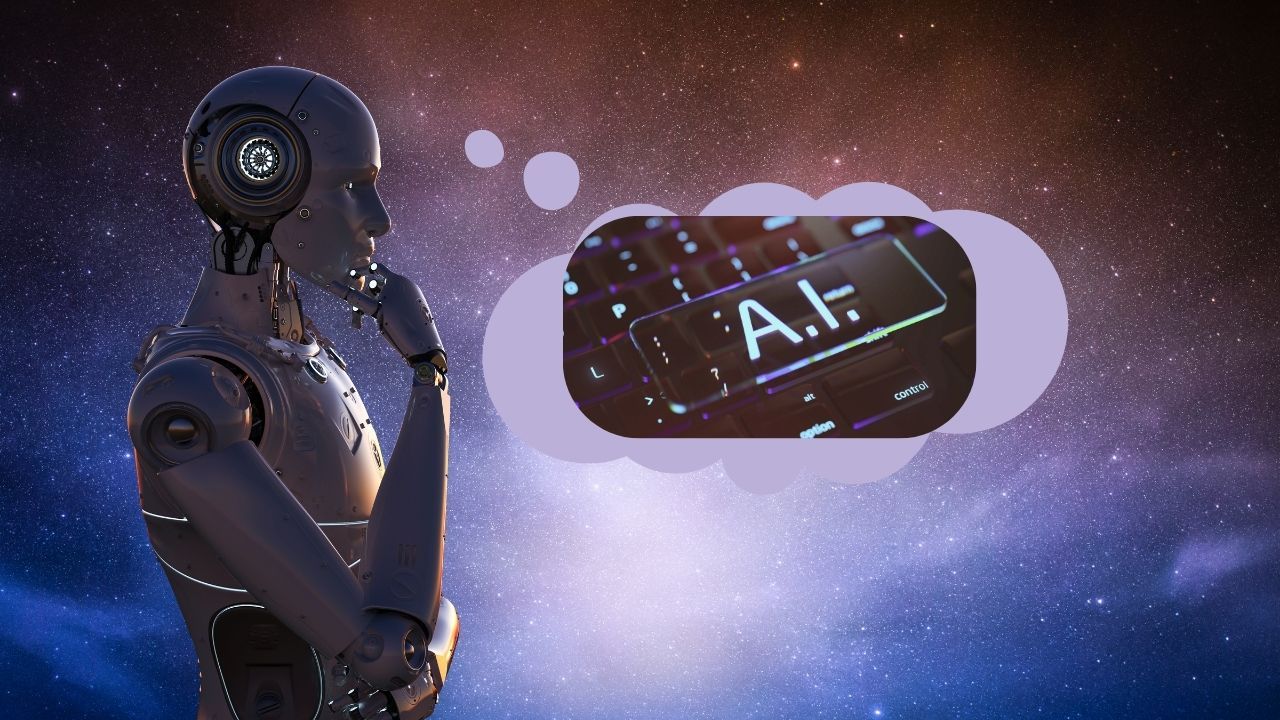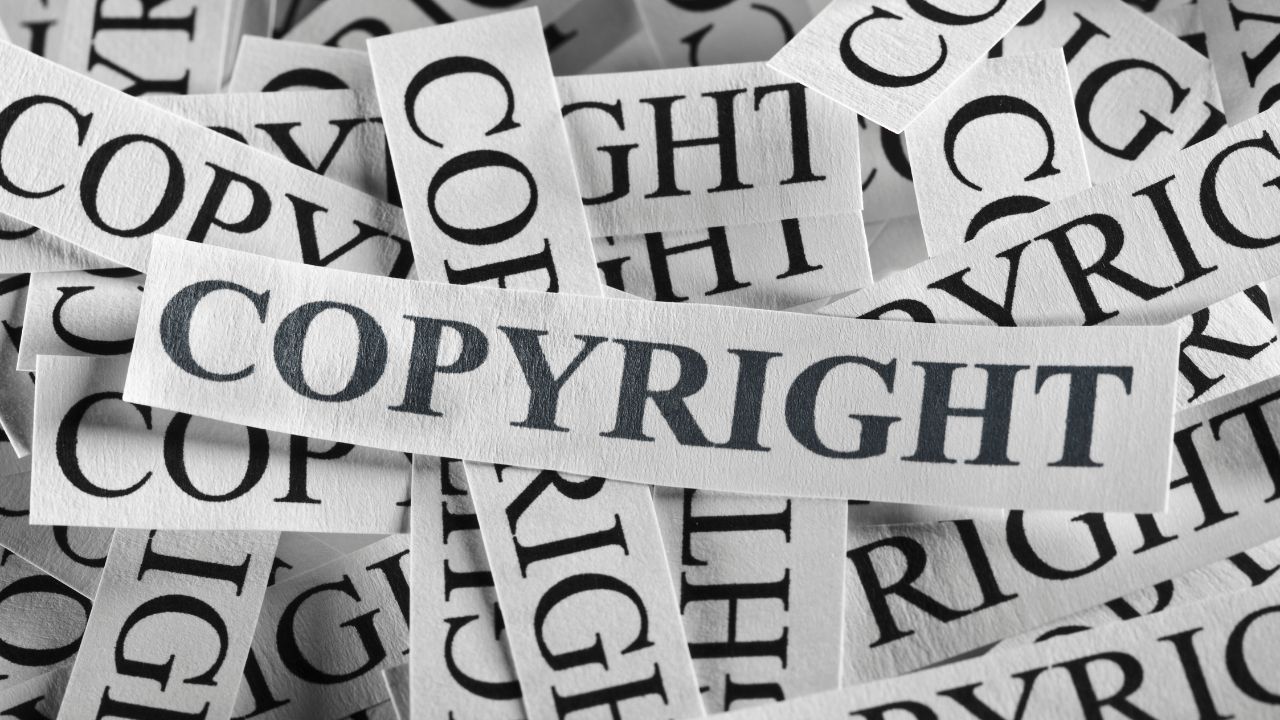Copyright and AI Text Generation: More Than 50 Shades of Gray
Sep 26, 2023
AI is all the rage in online business. Platforms like ChatGPT offer users a galaxy of content opportunities. If you’re an online course creator, coach, membership site or 1:1 service provider, you can use AI for content creation to help you write, or write for you, all different kinds of content for your business, including emails, social posts, sales pages and even entire courses. What used to take months now can take only a fraction of the time. But as you use AI tools, what issues should you be thinking about for the long term viability of your online business? Using AI and the extent to which you use AI in your business raises several issues related to content ownership and copyright. As you use AI, you should keep these issues top of mind so you can strategically use AI tools while developing, preserving and protecting your valuable content. Let’s dive in.

Understanding Copyright
Let’s take a look at what copyright is. Copyright protection results from the expression of an idea. Ideas themselves don’t receive copyright protection, only how those ideas are expressed. Once you share your original idea in tangible form, you automatically have copyright protection in that material. For example, if you have an idea to sell a course about starting an online business, you can’t claim copyright in the idea. Anyone can sell a course about starting an online business. You can only claim copyright in how you create the course about starting an online business and express your original ideas. To learn more about copyright, read my blog, Copyright 101 for Online Coaches and Course Creators: Protecting Your Digital Content from Copycats and Infringers.
What ChatGpt Had to Say
I asked ChatGPT the following: I'm writing a blog on copyright issues related to using ChatGPT. Can you identify the main copyright issues that come up when using ChatGPT?
It gave me an answer with the following list of copyright issues, each following by a couple of sentences explaining the concept:
- Ownership of the Input Data
- Ownership of the Output
- Derivative Works
- Fair Use
- Licensing Agreements
- Attribution
- Data Privacy
- Avoiding Plagiarism
- Public Domain and Open Access Content
- Future Legal Developments
And at the end it gave me a disclaimer that I should seek legal advice. Clearly there are a lot of issues related to copyright when using AI platforms. We can’t cover all of these in this blog. For this Blog, let's look at one of these issues: ownership of the output.

Ownership of the Output from AI Platforms
One of the important concepts in copyright law, and perhaps one that is not widely known, is that copyright can only protect content that is the product of human creativity. According to the U.S. Copyright Office, If a work’s traditional elements of authorship were produced by a machine, the work lacks human authorship and the U.S. Copyright Office will not register it. A thorough discussion of this is found in Registration Guidance published by the U.S. Copyright Office here in the Federal Register. If you decide to register your content with the copyright office, and we’ll discuss the benefits of that below, you’ll need to disclose on the application the use of AI to create your content. The degree to which you’ve used AI will determine whether or not the U.S. Copyright Office will allow you to register your content. If too much of the work is created by AI, you will not be able to register the work.
If an applicant files material for registration and does not adequately disclose the use of AI in its creation, the U.S. Copyright Office can subsequently revoke the registration. And, if the matter ends up in court, the judge can disregard the registration. One of the benefits to registering your significant and important content with the U.S. Copyright Office is that if someone violates your copyright, you can only sue for infringement of the copyright if you have timely registered the content. If you have used AI to generate your content, or enough of it that you can’t register it, then you will not be able to enforce your copyright in court. The copyright statute allows for statutory damages (essentially automatic damages) for violations, but these would be unavailable if you don’t own the copyright.
If you can’t own the copyright in the AI output, then neither can anyone else. But it’s possible that hundreds or even thousands of creators could end up with the same content, depending on the topic or subject area. Creators expend a lot of time and resources developing and protecting their brands. Brand colors, fonts, logos, business names, tag lines, trademarks, and even copyrighted content. Content also becomes part of what your business is known for. If the quality of your content fades, then this will be a cracked brick in your otherwise solid business foundation. Your content is your business’ most valuable asset; you should ensure that you own all of the rights to it.

Notification Requirements with AI
Let’s say that you only use AI for ideas and inspiration, and while you use some of what it produces for you, you alter the content and make it your own. Here, you’re on much better footing in terms of creating original content. But you’re not out of the woods yet.
AI Platforms may also require you to disclose when your content is AI generated. ChatGPT provides in its terms of use, which you must accept in order to use the platform, in Section 2(c): “You may not (i) use the Services in a way that infringes, misappropriates or violates any person’s rights; … (v) represent that output from the Services was human-generated when it is not …” If you publish your content that is 100% generated by the AI platform, you’ll need to disclose this to anyone viewing your content. And you won’t own this content as your original content. You won’t be able to protect it against infringers, and you won’t be able to register it.
If you are using AI for inspiration, or to help you organize your thoughts, and are then creating your own original content, you likely won’t have a copyright issue. In this case, you’re creating your own original content.. Where the line blurs is when you are only using part of the AI generated content and publishing it. While AI technology has been around for some time, the current use of AI technology by the public is too new to fully appreciate how these subtleties will be interpreted when disputes arise.

Finding the Right Balance When Using AI
As a content creator, what steps can you take to protect your business and brand while harnessing the possibilities of AI? First, understand the limits of AI. It can’t replace your genius or creativity. You are the power behind your brand and your business and your business will still need your voice. Ai, as we know it today, cannot replace your voice and the uniqueness that is you. Second, understand the boundaries of AI. As a powerful tool, AI can help you with many tasks in your business and can shave hours of time off of some tasks, perhaps even the tasks you enjoy the least in your business. But it can’t do it all, and you should think it can. This may sound obvious, and you may be thinking, of course I wouldn’t expect AI to do everything in my business. But it can become very easy to rely on AI and lose sight of the quality you’ll need to keep your business at the top of your industry.
I’ll explore more of the copyright and legal issues related to the use of AI in future blogs. Stay tuned.
Do you need customizable legal templates to legally protect your business, including your intellectual property? Take a look inside the Step Up Your Legal™ Template Shop to find the templates you need.


